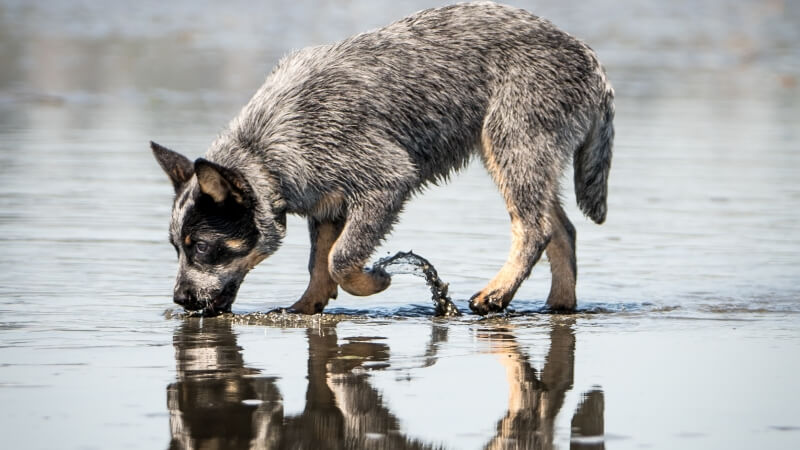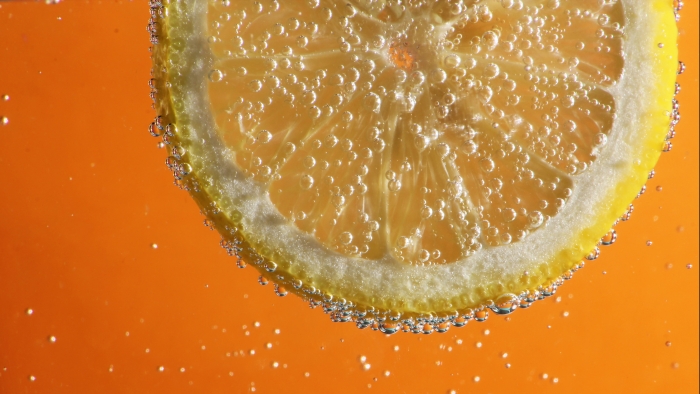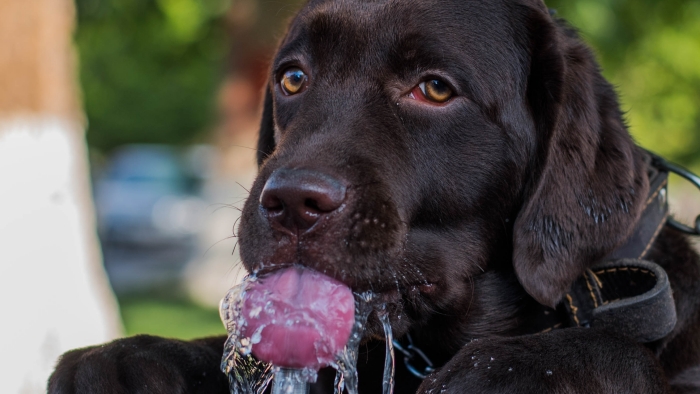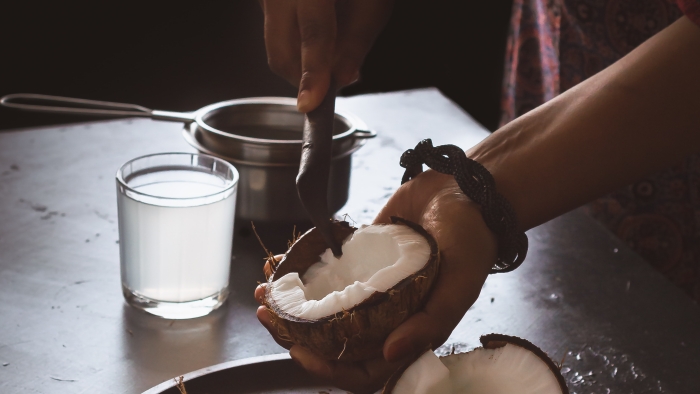
Best Doggie Doorbell:15+ Models Tested for Potty Training
Are you training your doggie doorbell manners, or does your furry friend incessantly scratch or bark at the door to go outside? You need a

Can dogs drink sparkling water? It’s a question that might have crossed your mind while sipping on a fizzy beverage. We all want the best for our canine companions, but is sparkling water a safe choice for them?
In this blog, we’ll dive into the world of bubbly refreshments and explore the potential impact of sparkling water on our furry friends. So, let’s get started and find out if it’s a tail-wagging yes or a paws-down no!
Sparkling water is essentially water infused with carbon dioxide (CO2) gas, creating effervescence. This carbonation is responsible for those delightful bubbles that make sparkling water unique.
However, it’s important to note that pure sparkling water typically contains no sugar, no flavorings, and no additives.

Let’s take a closer look at how sparkling water stacks up against plain water when it comes to meeting the hydration needs of our furry companions.
When considering the potential effects of dogs drinking sparkling water, it’s crucial to focus on how their digestive systems might react to the carbonation. The CO2 bubbles found in sparkling water can lead to various forms of digestive discomfort in dogs.
This includes the possibility of excessive gas buildup due to the carbonation, which can be particularly uncomfortable and even distressing for dogs. Additionally, the fizzy nature of sparkling water might lead to an upset stomach, causing further discomfort.
It’s important to note that some dogs have more sensitive stomachs than others. These dogs might be especially prone to gastrointestinal distress when exposed to carbonated drinks like sparkling water.
The chronic digestive discomfort that can result from regularly consuming such beverages can significantly impact a dog’s overall well-being.
Therefore, pet owners should be mindful and cautious about introducing sparkling water or similar carbonated beverages into their dog’s diet, considering the potential risks and prioritizing their dog’s health and comfort.
Do dogs enjoy the taste of sparkling water, or is it a sensation they find off-putting? We’ll uncover whether our furry friends readily accept this bubbly alternative.

Exploring the impact of sparkling water on dogs’ health, we assess the risks and benefits to provide a clear understanding of its suitability for canine consumption.
Addressing whether it’s safe for dogs to regularly consume sparkling water, we delve into the long-term health implications of including this fizzy beverage in their diet.
One major concern lies in hydration. Over time, the excessive intake of sparkling water might not provide adequate hydration, potentially leading to issues more severe than just an upset stomach.
The continuous presence of carbonation in a dog’s diet can cause persistent digestive problems.
More concerning is the risk of chronic dehydration, which can disrupt a dog’s hydration balance. This prolonged state of dehydration may put undue strain on their organs, thereby affecting their overall health and well-being.
Thus, it becomes crucial to evaluate the suitability of sparkling water for dogs, especially when considering their long-term health.
The superiority of plain water lies in its ability to provide ideal hydration without any potential side effects, unlike its sparkling counterpart.
It offers digestive comfort, reducing the risk of gastrointestinal issues and thus promoting a happier, healthier canine.
Additionally, plain water plays a crucial role in supporting kidney function by helping filter waste and toxins effectively from the body.
It also contributes to joint health, as well-hydrated dogs are less prone to joint problems, ensuring they maintain mobility and comfort in their daily activities. These benefits highlight why plain water is the most beneficial and safest hydration option for dogs.
In this section, we delve into the insights provided by veterinarians and pet health experts, examining their guidance and recommendations regarding the suitability of sparkling water for dogs, and exploring alternative beverage options that cater to canine health and taste preferences.
The Importance of Avoiding Excessive Sparkling Water: Advising caution against excessive consumption of sparkling water to prevent potential health risks.
Coconut Water as a Hydrating Treat: Recommending coconut water in moderation as a tasty and hydrating alternative for dogs.
Balancing Taste with Health Benefits: Emphasizing the importance of offering a variety of dog-friendly beverages that are both appealing and healthful.
Catering to Canine Preferences: Advising on the importance of observing and adapting to individual dogs’ beverage preferences for optimal hydration and enjoyment.

In conclusion, can dogs drink sparkling water? While it might be tempting to share your bubbly drink with your furry friend, it’s best to exercise caution.
Sparkling water may not be the ideal choice for dogs due to potential digestive discomfort and long-term hydration concerns.
To ensure your dog stays healthy and hydrated, stick to plain water as the primary source of hydration.
And here’s a helpful tip: consider using a dog doorbell to help your pet communicate their hydration needs, preventing them from drinking unsuitable beverages like sparkling water.
With your dog’s well-being in mind, it’s always wise to prioritize their healthy diet and hydration. Remember, a happy and healthy dog is one that enjoys a balanced diet, stays hydrated, and receives the love and care they deserve.
So, when it comes to the question, “Can dogs drink sparkling water?” it’s often best to err on the side of caution and choose plain water as the go-to option for your beloved canine companion.
Q1: What should I do if my dog shows a preference for sparkling water over plain water?
A1: If your dog seems to favor sparkling water, it’s important to gradually redirect their preference back to plain water. You can start by mixing a very small amount of sparkling water with plain water, gradually reducing the sparkling water content over time. Encouraging regular drinking habits with plain water is essential for their health.
Q2: How can I encourage my dog to drink more plain water if they’re not interested?
A2: To encourage your dog to drink more plain water, try placing multiple water bowls around the house, ensuring they have easy access to water at all times. Also, changing the water frequently to keep it fresh and appealing can help. Some dogs prefer running water, so a pet water fountain might be a good investment.
Q3: What are some signs that my dog is not drinking enough water?
A3: Signs of dehydration in dogs include lethargy, dry gums, excessive panting, and a loss of skin elasticity. If you notice any of these signs, it’s important to encourage your dog to drink more water and consult a veterinarian for advice.
Q4: My dog doesn’t drink much water but still urinates regularly. Should I be concerned?
A4: If your dog is urinating regularly but not drinking much water, it could be a sign of a health issue, such as diabetes or kidney disease. It’s important to observe other signs like changes in appetite, weight loss, or lethargy, and consult your veterinarian for a thorough checkup.
Q5: Are there any specific breeds that are more prone to not drinking enough water?
A5: While there aren’t specific breeds that consistently drink less water, individual dogs may have unique preferences or habits. Some breeds, like those with thicker coats, may require more water, especially in hot weather. Monitoring your dog’s water intake and ensuring they have constant access to fresh water is crucial for all breeds.


Are you training your doggie doorbell manners, or does your furry friend incessantly scratch or bark at the door to go outside? You need a

When it comes to dog pee, much like humans, the urine of animals is a vital health indicator. Just as human urine reveals a lot

Noticed your dog yawn more often than usual? While it’s adorable, it could also be a sign of something to consider if it appears excessive.

Wondering what’s so fantastic about bell train a dog? Picture a world where your furry friend always alerts you when they need to go outside,

Are you training your doggie doorbell manners, or does your furry friend incessantly scratch or bark at the door to go outside? You need a

When it comes to dog pee, much like humans, the urine of animals is a vital health indicator. Just as human urine reveals a lot

Noticed your dog yawn more often than usual? While it’s adorable, it could also be a sign of something to consider if it appears excessive.

Wondering what’s so fantastic about bell train a dog? Picture a world where your furry friend always alerts you when they need to go outside,
Copyright © 2024 doggydogdoorbell. All Rights Reserved.